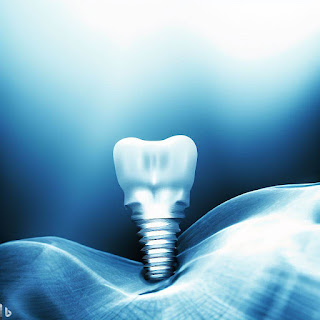Dental implants.
Millions of osseointegrated implants have been placed to replace teeth in the mouths of millions of patients.
Dental implant procedures have been used for decades, and scientific evidence supports their effectiveness in replacing missing teeth.
Dental implants are the best solution to replace one or more teeth and a great alternative to restore aesthetics and chewing function to patients. However, they are not always the first and only solution, nor can their hygiene and control be neglected. They are a magnificent alternative for replacing missing teeth or teeth with an impossible prognosis, but the first option is always to try to keep the natural tooth... And if an implant is necessary, it must be carried out with indications and always by a team of qualified professionals.
4 'imperatives' before inserting an implant
It is essential to carry out a correct and complete diagnosis beforehand, checking the general health of the patient and performing the clinical examination and the necessary X-rays to verify the availability of bone.
If the patient smokes, the long-term prognosis is worse for both teeth and implants. Therefore, giving up this habit before starting implant treatment is highly advisable.
If there is uncontrolled periodontal disease, the prognosis of the implants will also be worse because the implants, like the teeth, will be lodged in the bone and gum. Therefore, these tissues must be healthy before starting implant treatment...
And, of course, the patient who will receive the implant must be committed to its correct daily care and comply with the subsequent control and maintenance visits of the implant treatment since it is not exempt from complications.
Threats
The appearance of infections is the main threat to the good health of the implants. Two types are distinguished:
-Mucositis: this is a pathology similar to gingivitis that occurs around the teeth. It is characterized by inflammation and bleeding of the mucosa surrounding the dental implant. If it is not treated in time, it can evolve into peri-implantitis.
- Peri-implantitis is a pathology similar to periodontitis that occurs around the teeth. It is characterized by the inflation of the peri-implant mucosa and, in addition, the loss of bone around the dental implant. Not treated in time can lead to significant esthetic problems and even implant loss.
Although these infections are caused by the presence of bacteria, there are some risk factors capable of increasing the chances of suffering either of these two pathologies:
Deficient hygiene: The accumulation of bacteria around dental implants hurts the health of the peri-implant mucosa and the bone that anchors them.
Patients with periodontitis: Patients with periodontitis are at increased risk for infections around dental implants, especially if the periodontitis has not been treated before implant placement.
Tobacco: Tobacco consumption increases the risk of losing bone around dental implants. It also appears that the risk is proportional to the number of cigarettes consumed.
5 essential cares
After treatment with dental implants, if they are not adequately cared for, problems can appear. The frequency of these complications can be high. As with teeth and gums, taking care of dental implants and the soft tissues surrounding them (peri-implant mucosa) is in the hands of each individual. The health and longevity of dental implants are clearly associated with the health of the surrounding mucosa.
By following these simple 5 steps daily, you can reduce the risk of occurrence of problems with dental implants and the peri-implant mucosa surrounding them:
2 times a day:
1.- Brush teeth, gums, mucosa, and dental implants correctly.
Always clean between the teeth and between the implants with dental floss or with specific interdental brushes.
3.- Rinse with a suitable mouthwash when indicated.
Every 3 months:
Renew the toothbrush 4.
At least once/year:
5.- Visit the dentist. Check dental implants and the rest of the mouth.

